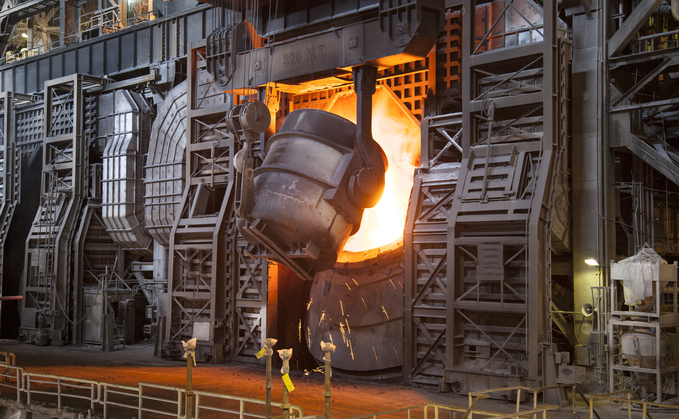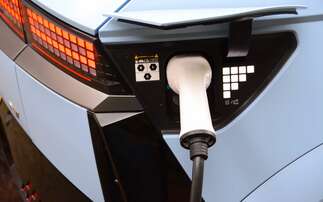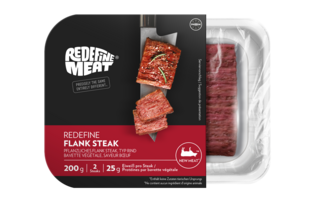Credit: iStock
Every steel manufacturer worldwide must take immediate steps to decarbonise and scale 'green' innovations, as pockets of piecemeal action will not be enough, according to ResponsibleSteel
The entire steel industry needs to take immediate action to decarbonise operations by scaling up their use of fossil fuel alternative such as green hydrogen and electric arc furnace technologies, as pockets of "radical shifts" by just a handful of industry leaders will not be sufficient to put the sector on a 1.5C-aligned pathway.
That is the warning shot fired in a new report today by industry standard and certification body ResponsibleSteel, which urges the global steel industry to take "bold and universal action" to accelerate progress to net zero emissions, and to clearly map that progress out in "a universal language".
The report - Charting Progress to 1.5°C through Certification - stresses that the industry needs to ensure every steelmaking plant operating worldwide today emits less CO2 than today's average emissions intensity by the end of the decade if climate goals are to be met, underscoring the need for immediate progress across every corner and region of the sector.
"Transforming the steel industry will require bold and universal action," said ResponsibleSteel CEO Annie Heaton. "No one can sit on the sidelines. Our analysis shows how certification can be used both to plan and to track the progress of every site on an equitable basis. Those who are not certified cannot be tracked."
The report includes a study of six key steelmaking regions, and notes that conditions such as scrap availability, natural resource endowments, climate policies, and available finance will likely impact the speed and nature of industrial change. As such it calls for "regionally nuanced approaches" and cautioned that although the entire industry needs to shift, radical change at scale takes time.
ResponsibleSteel also urged steelmakers to look beyond their physical site boundaries, estimating that indirect supply chain-related emissions are set to make up around a third of total average sectoral emissions by 2050.
Also commenting on the report, Climate Group CEO Helen Clarkson said the steel industry - which is estimated to account for between 7-11 per cent of global CO2 emissions - now stood at a "critical juncture".
"It needs to decarbonise, and it must do so now," she said. "The ResponsibleSteel pathway report provides an essential and clear framework to urgently guide the industry toward a 1.5C-aligned future. This report makes clear that we must act boldly, now - and innovate rapidly to meet our Paris Agreement commitments and ensure a liveable future for all."
It follows separate research earlier this week by Transport & Environment (T&E) claimed that using lower carbon steel - produced using green hydrogen and electric arc furnaces, or recycled from scrap - could cut CO2 emissions from European car manufacturing by 6.9 million tonnes in 2030, an amount roughly equivalent to the annual emissions of 3.5 million fossil fuel cars.
The non-profit also estimated that, if car manufacturers scaled up to sourcing 40 per cent of their steel from greener manufacturing technologies, it would add just €57 to the sale price of an average electric vehicle (EV) in 2030.
Then, if manufacturers further scaled up to using 100 per cent green steel by 2040, it would cost just €8 more than conventional steel manufactured using fossil fuels, due to a combination of CO2 pricing and the expected falling costs of green steel over the next two decades, according to T&E.
As a result, T&E urged policymakers across Europe to set industry targets for carmakers requiring then to source at least 40 per cent of the steel used in new cars to be produced from low carbon manufacturing technologies and processes by 2030, rising to 75 per cent in 2035, and finally 100 per cent in 2040. T&E said carmakers could be given an average target across all the new cars they produce, which it claimed would allow them to absorb initial costs via premium models.
T&E suggested such thresholds could be introduced via the EU End-of-life Vehicles regulation which is currently being revised by European lawmakers.
"For less than a tyre change, Europe can build a green steel industry," said Alex Keynes, cars policy manager at T&E. "The extra cost will be negligible and in time it will be cheaper than conventional steel. But we first need lawmakers to kick start the shift to low-carbon steel in the automotive industry.
"The automotive sector is the second biggest consumer of steel and well positioned to be a lead market for green steel in Europe. The relatively high value of cars, especially premium brands, means they can absorb the short-term green premium of low-carbon steel."
Want to understand what is going on at the cutting edge of sustainability? Check out BusinessGreen Intelligence - the premier information for professionals focused on the UK's green economy










